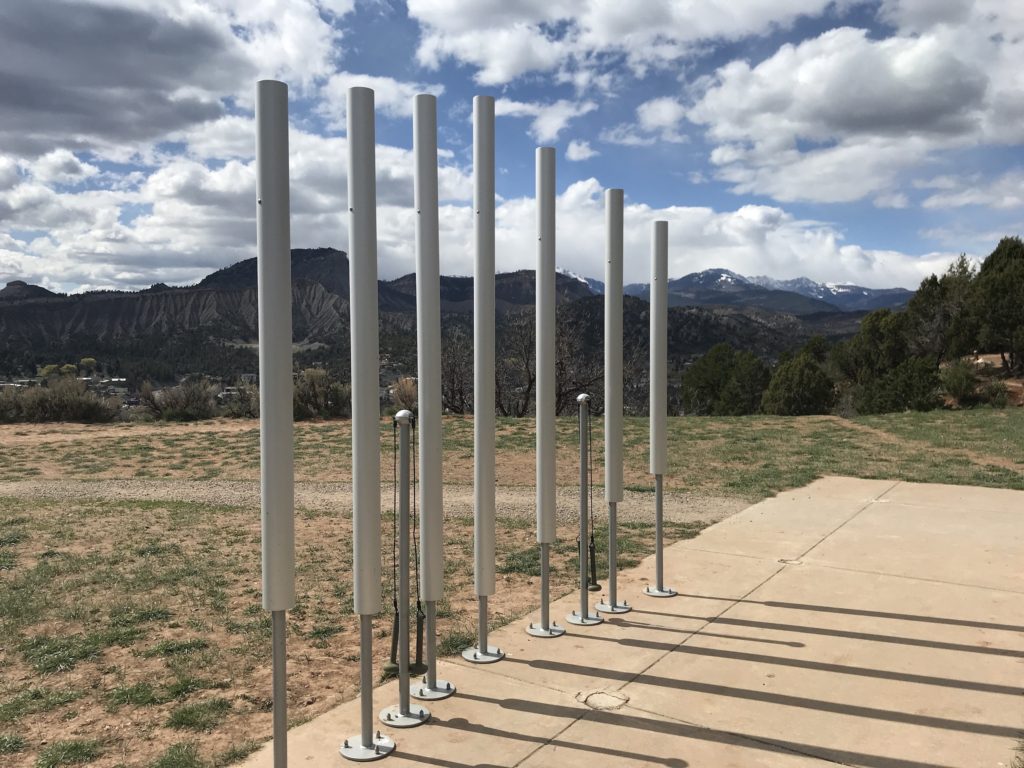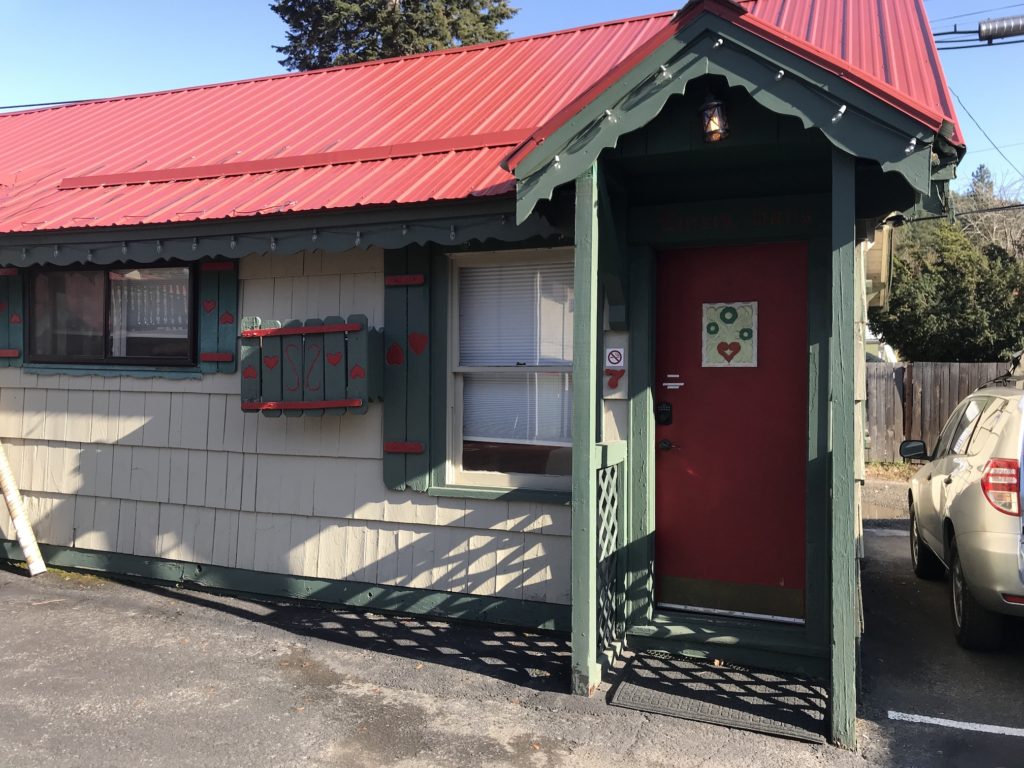Yesterday, I did it. It’s taken me 14 months, but I finally played an original, complete, coherent, eight bar melody on the public chimes at the top of the sky steps at Ft Lewis College. You may well ask why it has taken me so long. After all, college music theory III required a complete Sonata of three movements plus coda in less than a semester’s time -half of which time was spent learning the rules governing a sonata. My sonata, named something prosaic like Praxis Sonata, critically acclaimed by the entire class, garnered me only a B on my final report card. A B! In music! Even then, I knew my instructor was generous. Why? Because he knew something my classmates did not know. I had failed to analyze the piece – to mark in the jots and tittles right on the music. And though I worked frantically with my pencil on the bound and presentable copy whilst other students performed ahead of me, I had not completed the analysis before the final bell.
Give me seven giant, floor-mounted windchimes at the top of a trail and two attached mallets, what could possibly be difficult? I’ll tell you what: They never gave me the rules. I have spent a year trying to figure out the theory of the thing. Not diatonic. Not arranged in ascending or descending chronological order. One of them is even out of tune with the other. Seven. Not six like guitar strings. Not a major scale. Not a mode. Nada. Not an Aeolian harp. I discovered the chimes early in March 2020 and played them at each passing so my ear could make out the pattern. No pattern developed. By Labor Day I could play two bars of the French Marseillaise, but after that, the available tones gave out. I pondered what I knew of world music and puttered about making incidental riffs whenever I hiked in that neighborhood. Most of the hikers and stair step masters ignore the presence of the chimes. They wear motivational earbuds so what do they care? Once, and one time only in the entire 14 months, I saw a child walking away from the chimes. Otherwise, the chimes are my oyster and mine alone, I guess. I’ve heard oysters need irritation to compose pearls. I was plenty perplexed.
With March 2021 came the advent of distanced outdoor concerts downtown every Friday. On the walk home, it seemed only natural to take in the art gallery in my path. And there I saw them; miniature, hand-held tone bars in sets of five. What were they? Freetone bells. Freetone bells made by the same artist responsible for several outdoor musical installations around the community including parks, pre-schools and Ft. Lewis College. Not one of the five tone sets is just like any other. They are all free. Each sounds its own unique pitch without regard for harmony or the chime hanging next in line.
Do you know what that means? No rules. You are free to strike any chime you like in no particular order. But me? I’m still bound to the definition of music as organized sound. I’ve spent a good deal of time and research trying to get to know these chimes. So far, I’ve got them organized into 8 bars of passable melody. I’ve still got to figure out how to work one outstanding chime into the mix, but six out of seven isn’t bad – it’s kind of like my life. Here’s to the future; with or without rules!


